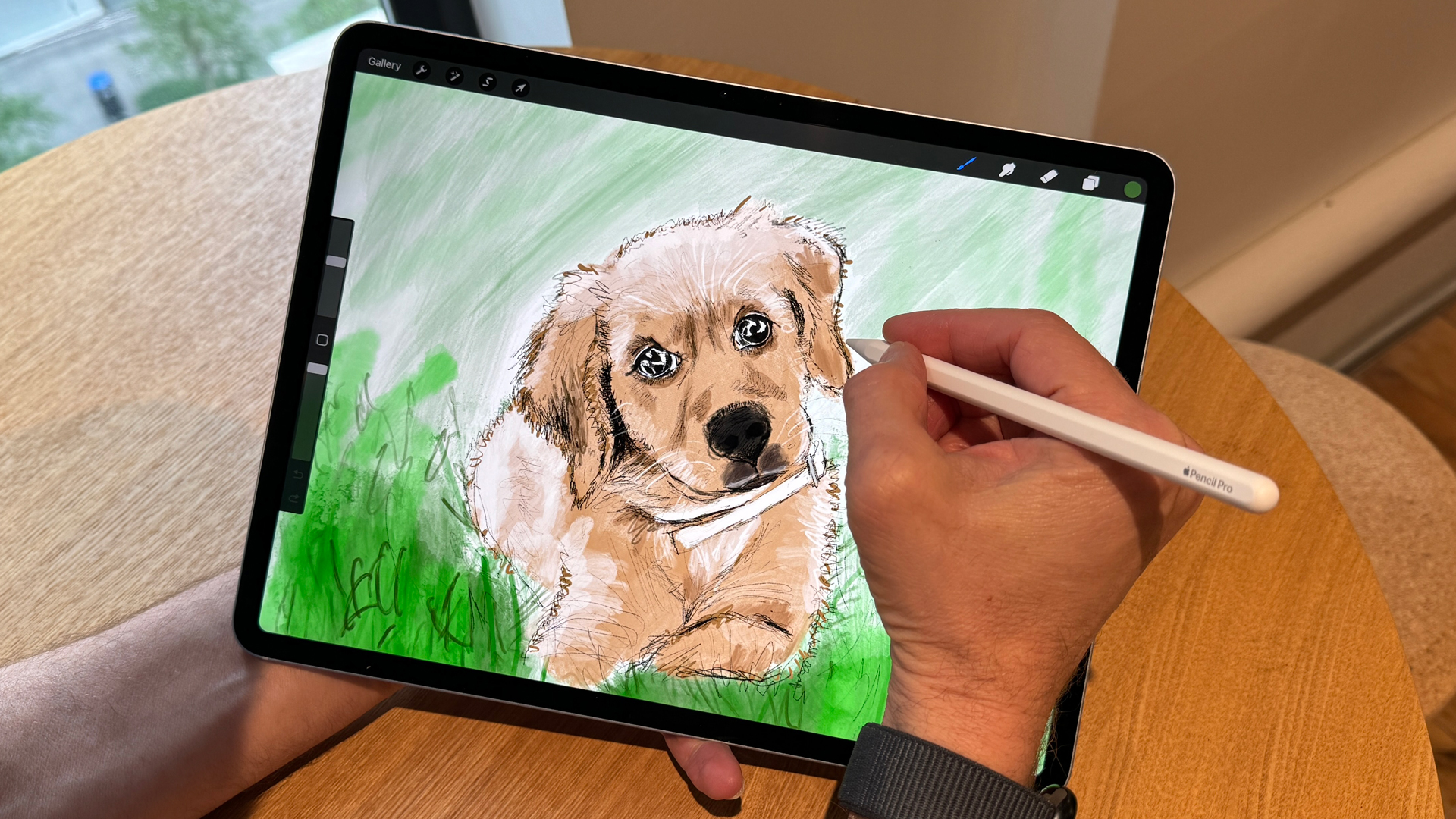The Merriam-Webster dictionary describes a ‘damp squib’ as “something that is disappointing because it is not as exciting or effective as expected.” And that’s how I’d describe Apple’s reveal of iPadOS 18 at WWDC 2024.
While the iPad-centric operating system will get a lot of the slick features of iOS 18, such as smart categorization of emails in the Mail app and the ability to schedule messages in iMessage, the exclusive iPadOS 18 features are a big ol’ meh.
Yes, the addition of a native Calculator app for iPads may have got a whoop at WWDC’s keynote and had many people flock to the TechTadar TikTok, but the rest of the features didn’t leave my colleagues or I with the impression that Cupertino’s snazzy fondle slates are being particularly pushed.
The Notes app gets the Smart Script feature to help smooth out quickly scribbled text, and there’s now live audio transcription, plus some fresh customization that will let users rearrange icons and widgets where people want them on the home screen.
None of that is bad, but as the iPad Air 2024 and iPad Pro 2024 come with the new Apple M4 chip, I was left with a distinct feeling that Apple’s in-house silicon is hardly being pushed.
In fact, I’m a tad miffed Apple didn’t do more. It’s harped on about iPads being able to replace laptops, at one point coming to a head with the infamous “what’s a computer?” advert – which still makes me cringe to this day – yet refuses to make iPadOS into more of a desktop-like experience when connected to the Magic Keyboard.
This has felt like a missed opportunity in my eyes, even though Apple has long railed against bringing iPadOS much closer to macOS.
The crux of this is down to the power Apple has stuffed into the new iPad Air and iPad Pro models. While the M4 chip isn’t necessarily a huge step on from the M3 chip, in that in prioritizes efficiency and AI workloads over a big boost in raw performance, it’s still a slice of silicon that’s basically laptop-grade; in some cases desktop-grade when you take into account the iMac 24-inch and Mac mini.
Sure, the suite of iPads will get access to the new Apple Intelligence, and will surely have access to the smarter Siri. But these tools seem generic and good for iPhones rather than something that’ll really tap into the power and flexibility of the new iPads. The addition of a Game Mode and improved audio via compatible AirPods is also nice to have, but again isn’t anything that iOS 18 won’t get; plus I feel these features aren’t helping turn the iPads into slick gaming machines despite the chips at their hearts.
All the gear with no idea

This is frustrating as my colleague Matt Hanson, Managing Editor of Core Tech, recently pointed out when he ditched his laptop for an iPad Pro for a few weeks that “the hardware’s there – but the software isn’t.” So it seems to me that Apple is really missing a trick here, despite having often been great at getting the most out of its tech.
And I feel all this puts the new iPads in an odd place. They may have more power, but that strength doesn’t look like it’s being well used, and older iPads can still do just about everything the newer ones can due to the lack of demanding software.
Now one could argue that we see similar things with some of the best Android phones that have powerful chips but don’t really ever push those capabilities. But phones still cover a different use case from tablets, despite being close cousins, meaning it’s not unreasonable to expect more from a tablet.
There’s a caveat here in that I’ve yet to try out iPadOS 18. But unless Apple has some hidden features it’s yet to showcase and Apple Intelligence really taps into M4 power, iPadOS 18 has left me underwhelming and I can’t help feel that M4-equipped iPads are overpowered to the extent that they may be a waste of money in slick rectangular form.




















+ There are no comments
Add yours